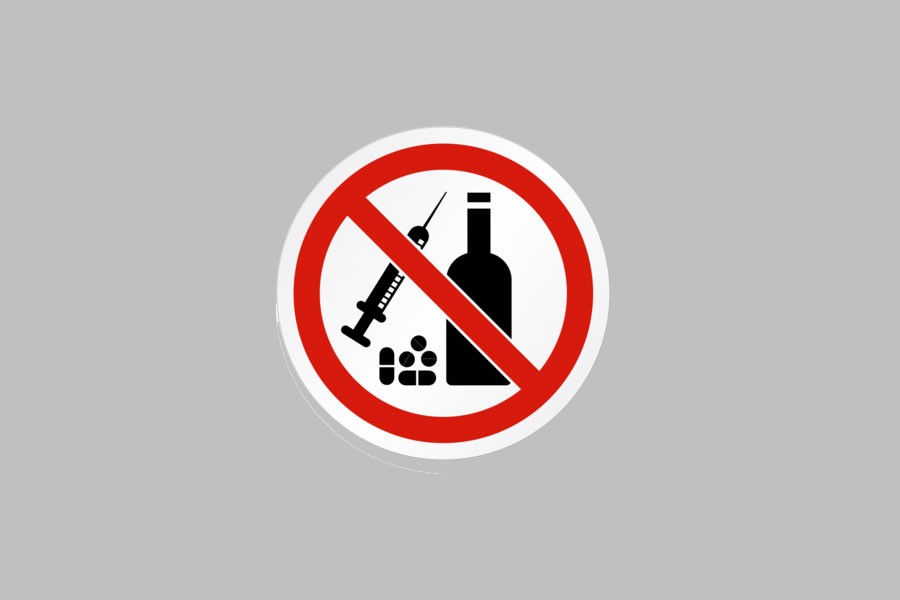Today, June 26, is the international commemorative day against "Drug Abuse and Illicit Trafficking" of drugs. Determined to realise a global society free of drug abuse, the UN General Assembly adopted a resolution on December 7, 1987 (Resolution No.42/112) to observe the day to promote awareness on harmful consequences of illicit drug abuse.
The General Assembly acknowledged that regardless of unrelenting efforts by the global community, the world's drug problem remained a grave threat to "public health, the safety and well-being of humanity."It also constitutes a serious and endemic problem in contemporary Bangladesh.
According to Bangladesh Narcotics Control Department (NCD), of the total 165 million people, about "seven million" are addicted to drugs. For years, the drug laws were not firmly implemented."Yaba", "Phensedyl syrup", and "marijuana" are the commonly abused drugs in Bangladesh allegedly trafficked from Myanmar and India.
Approximately 85 per cent of drug addicts are male young people of around 15 to 30 years old. They use prohibited drugs mainly due to utter frustration and hopelessness in life.
In keeping with the government's zero-tolerance policy against illegal drugs, Bangladesh parliament passed a tough anti-narcotics law stipulating death penalty for those engaged in illicit drug trade in October 2017.
Drug addiction, unquestionably a serious problem, causes harm to a person, his or her family and community. Indeed, the ramifications of drug addiction are manifold as it directly affects addicts' physical and mental health, their work, relationships and financial conditions. Persistent drug use causes changes in the brain chemical systems affecting functions that include learning, judgement, decision making etc.
Pundits point out; those young persons who abuse drugs are found to be involved in delinquency, aggressive behaviour and various criminal activities.
In order to address the growing problem, a major nationwide crackdown resembling the Philippines-style "war on drugs" was launched in Bangladesh on May 4, 2018. The anti-crime unit of the Rapid Action Battalion (RAB) and the police also seized a record 53 million Yaba pills (combination of methamphetamine and caffeine) in 2018.
In the anti-drug drive, over 400 alleged drug dealers, traffickers and suspects were killed in "crossfire" and about 25,000 arrested across the country. But relatives of the killed drug peddlers claimed, many of them were initially detained by the police and died while in custody.
Local and international human rights groups such as "Odhikar", UN Human Rights High-Commissioner and Human Rights Watch have condemned alleged extrajudicial killings which the regime continuously denied.
Critics of the government's approach against the alleged drug dealers underscore that the suspects do have the constitutional right to defend themselves in the court of law.
Though over 100 drug dealers have already surrendered, the menace is believed to be quite widespread in the country. Legal experts consider arbitrary and extrajudicial killings of drug dealers are in clear violation of rule of law and human rights. Killings may not solve the problem fully unless the root causes are addressed.
Moreover, the ongoing war on suspected drug peddlers remained contentious as it is alleged that the law enforcement authorities did not apprehend Kingpin dealers who control the illicit drug trading in the country. While fighting the menace of drugs, they have killed and punished petty peddlers and drug addicts.
Activists consider that the current procedure of war on drugs is flawed and improper and is likely to be unsuccessful. They urge that the Bangladesh government take lessons from other countries that successfully addressed the illicit drug abuse problem.
Experts agree that the general public must be made aware of the dangerous risks and consequences of addiction to drugs. Besides launching substantial preventative and awareness-raising programmes along with additional resources for treatment and rehabilitation services, law enforcing agencies should make serious efforts to intercept illicit trafficking at the very entry points.
To conclude, while the government must continue an "all-out war" on illicit drugs, it should be carried out effectively and within the "due process of law." Also, parents, close relatives, teachers, and health care staff -- all have to play a vital role in educating children about the deadly consequences of prevailing drug abuse and addiction.
Dr. Kamal Uddin Ahmed is a former Professor and Chairman, Department of Political Science, University of Dhaka.


